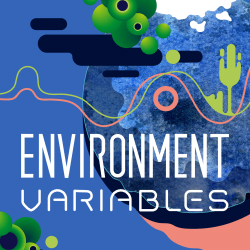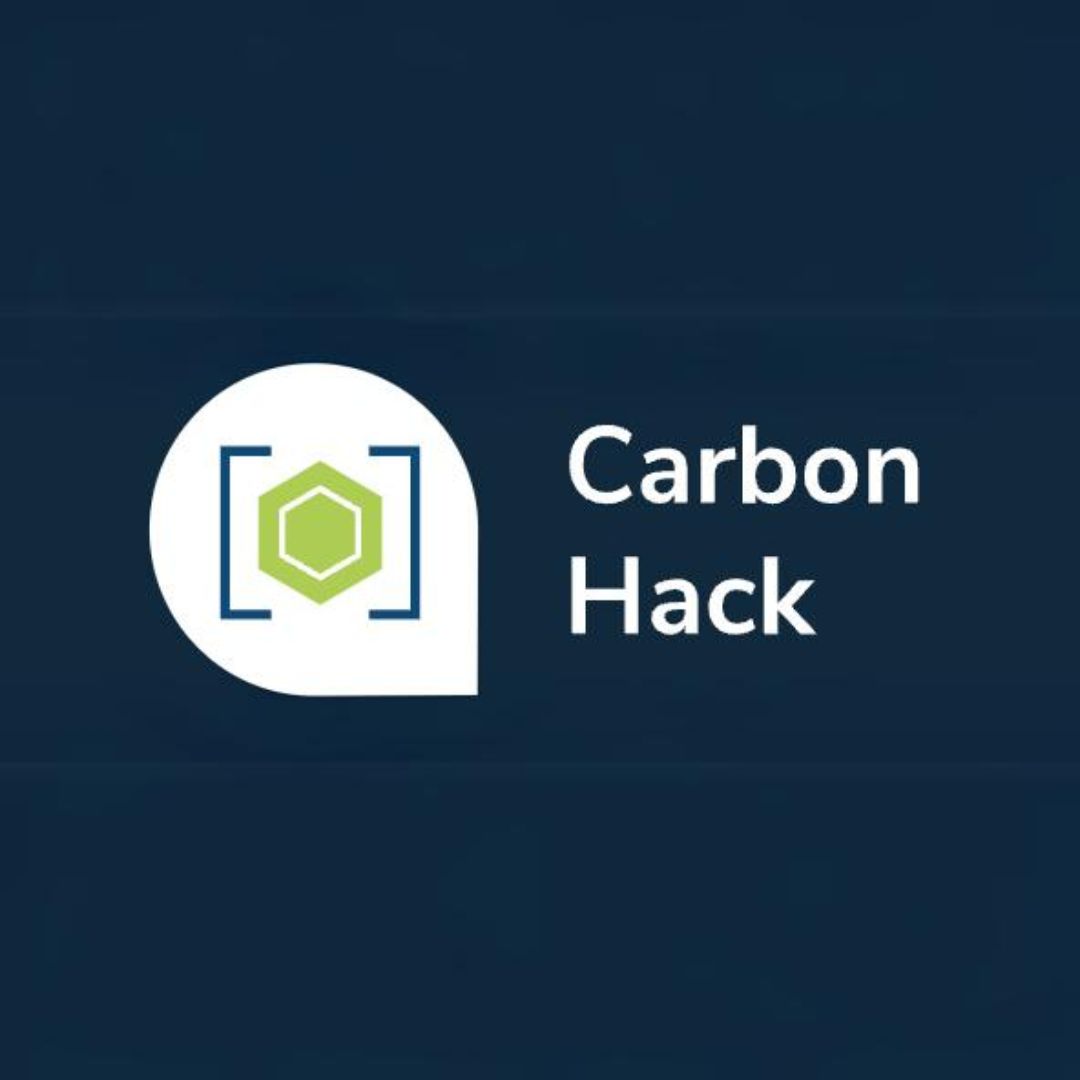Discover Environment Variables
Environment Variables

Environment Variables
Author: Green Software Foundation
Subscribed: 19Played: 457Subscribe
Share
© Green Software Foundation
Description
Each episode we discuss the latest news regarding how to reduce the emissions of software and how the industry is dealing with its own environmental impact. Brought to you by The Green Software Foundation.
70 Episodes
Reverse
Joining Chris Adams today is Mike Gifford, an accessibility and open web veteran, to look at the drivers adopting digital sustainability in the industry, learn from the field of accessibility and inclusive design how we can further sustainable software development. Mike tells us about the wins from the accessibility movement that we can learn from in this engaging episode.
In this episode of Environment Variables, host Chris Adams explores the theme of Community Publishing and Greening Software, by talking to Branch Magazine’s Hannah Smith and Marketa Benisek. They discuss community publishing and the lessons learned from producing Branch Magazine, which supports sustainable digital practices and includes diverse voices from the Green Software Foundation. The discussion covers the complexities of adopting digital sustainability and how Branch Magazine, through its innovative, carbon-aware design, has been a platform for expressing these nuanced themes in sustainability and how finding beauty in the imperfect might just be the answer to all your problems!
In this episode of Environment Variables, host Chris Adams introduces the co-authors of Building Green Software - Anne, Sara, and Sarah. Through candid discussions, they explore the process of writing about green software development and highlight key insights gained along the way, touching on the interconnectedness between sustainability and existing best practices in software engineering, and emphasizing that embracing sustainability isn't about adding extra tasks but rather integrating it seamlessly into existing protocols such as security, resilience, and monitoring. Join for a thorough conversation on the lessons learnt writing the newest book on green software.
In this episode of Environment Variables, host Chris Adams engages in a fascinating discussion with Marjolein Pordon, a quality consultant at Praegus, about the exciting synergy between sustainability and low code platforms. They explore how low code tools not only streamline software development but also play a crucial role in reducing carbon emissions. Marjolein shares insights into the early integration of sustainability considerations in the development cycle, and together, they demystify the misconception that companies' unique needs necessitate custom software solutions, highlighting the efficiency and environmental benefits of leveraging shared components in low code environments.
In this episode of Environment Variables, host Chris Adams delves into the fascinating topic of the rebound effect with Vlad Coroamă, founder of the Roegen Center for Sustainability. They discuss how improvements in efficiency can sometimes paradoxically lead to increased consumption, using examples like teleworking and online shopping to illustrate the point. Through their conversation, they explore why this happens and what conditions make it more likely. Their insights shed light on the complexities of balancing technological advancement with environmental sustainability, offering valuable perspectives for anyone interested in building greener digital services.
In this episode of Environment Variables, host Chris Adams is joined by Rachel Tipton, a full stack developer at Open Climate Fix, to delve into the intersection of AI, green software, and electricity infrastructure. Rachel emphasizes the increasing demand for electricity due to factors like server centers, EVs, and electrification efforts. They explore the concept of carbon awareness and its implications for software development, shedding light on the complexities of optimizing energy consumption and reducing carbon emissions. Through Rachel's journey into coding and her work at Open Climate Fix, listeners gain insights into the critical role of technology in decarbonizing the electricity grid and mitigating climate change.
This week, Chris Adams is joined by Asim Hussain and Anne Currie for an engaging chat on the present and future of legislation around AI and Green Software. Our guests share their hot takes on various topics such as the usefulness of proxies in measurement. With backgrounds in climate and tech, and a future full of green energy, they share their insights into what we might expect, and hope for, from the future.
Chris Adams is joined by special guest Kate Goldenring, Senior Software Engineer at Fermyon. Together, they ask the real questions “is serverless computing the greener choice?” and “if so, under what circumstances is this true?” Tune in for an illuminating conversation on the current state, news, and future of green computing, digging into the topics of cloud computing, soft allocation, WebAssembly, and more.
We're gearing up for the return of Carbon Hack 24 happening from March 18 to April 8, 2024. This year we're focusing on the Impact Framework, aiming to innovate how we measure the environmental impact of software. It's a chance for engineers, designers, and creators to dive into challenges, ranging from plugin development to non-technical content creation. We're inviting students too, with special categories just for them. Join us to push the boundaries of sustainable software. For details on how to register or to become a sponsor, check out the link below:
Register at https://grnsft.org/hack/podcast 👈
This Week in Green Software, host Chris Adams is joined by Gabi Beyer and Brendan Kamp from re:cinq to talk about the recent initiatives to and consequences of the prolonging of the lifecycle of technology. The challenges of measuring carbon emissions in personal laptops and cloud services are discussed, highlighting the complexities of quantifying environmental impact, as well as companies reporting on these metrics. Tune in for a lively discussion on sustainable software development.
Join TWiGS host Chris Adams in talking to Kristina Devochko, tech lead of the Environmental Sustainability TAG at the Cloud Native Computing Foundation. Kristina shares her journey from economics to tech sustainability, and eventually joining this Technical Advisory Group. Further, they discuss the mission and projects of the group, as well as how anyone interested and willing is able to contribute. She elaborates on her experience of diving into this new field with no prior knowledge and acts as a reminder that no matter how scary it seems, you can do it too.
Asim Hussain is joined by guests Srini Rakhunathan and Navveen Balani, the technical leads on the Impact Framework. They delve into how this innovative tool effectively models, measures, simulates, and monitors the environmental impacts of software across various platforms. The conversation explores the framework's unique ability to handle diverse environments, from cloud systems to mobile devices, with an emphasis on the practicality and necessity of measuring software emissions accurately. Highlights include intriguing insights into integrating the Impact Framework with SCI Open Data and the future of green software development. This episode is packed with valuable information and thought-provoking discussions that offer a glimpse into the future of sustainable software.
Host Chris Adams is joined by Arik Smith and Cameron Cash from Thoughtworks in this episode of Environment Variables. Together they discuss the Cloud Carbon Footprint (CCF) tool and the role it plays in sustainable software development. Join this conversation as they nerd out together about the future of measuring carbon in the cloud, open source collaboration, and some cool posters in the background.
In this episode we take a look back at another talk from our Decarb 2023 Event while we’re all on the New Year break at the GSF. Titled Driving Climate Change Solutions with AI, Charlotte Degot of CO2 AI and Diana Dimitrova from Boston Consulting Group talk about the Third Annual Carbon Emissions Survey titled Why Some Companies are Ahead in the Race to Net Zero.
TWiGS host Chris Adams is joined by guest Savannah Goodman from Google, to bring you the latest news and updates from the world of sustainable software development. They discuss insights from Google’s Sustainability report, the need for a fossil fuel free internet by 2030 and the importance of microgrids and nanogrids. They also highlight Google's sustainability tools including Cloud Region Picker, Active Assist and Carbon Footprint.
From the recent Decarbonize Software 2023 event, this episode showcases a fireside chat on Responsible AI with Tammy McClellan from Microsoft and Jesse McCrosky from ThoughtWorks. Jesse shares his thoughts and experiences from years of working in the field of Sustainable Tech on the topics of risks, sustainability, and more regarding AI, before answering some questions from the audience.
Chris Skipper hosts this episode of Environment Variables with guests Sophie Trinder and Adam Jackson to discuss the unveilings, questions, and highlights from the recent Decarbonize Software 2023 event. The GSF has announced its Impact Framework during the event that had taken place in November, and together with Chris, our guests discuss the realities of (and dreams for) the state of green software in this recap of Decarb 2023.
Chris Adams is joined by Ines Akrap from Cognizant to talk all-things sustainable web design. Together, they delve into the nuances of designing energy-efficient websites and the challenges of green coding in frontend development. Ines shares valuable insights from her experiences at the Linux Energy Foundation Summit and the SDIA Green Coding Summit. The episode also explores common mistakes in optimizing sites for carbon efficiency and discusses exciting projects in the field of green software that are generating buzz. Resources like Website Carbon, Ecograder, and Lighthouse are highlighted, alongside discussions on the Software Carbon Intensity Specification and the CarbonAware SDK. This episode is a must-listen for anyone interested in the intersection of web development and sustainability, offering practical tips and exploring new research horizons in the quest to decarbonize the digital world.
In this episode of Environment Variables, we dive into a key highlight from Decarbonize Software 2023, featuring Asim Hussain's talk on the Green Software Foundation's newly introduced Impact Framework. This innovative framework aims to model, measure, simulate, and monitor the environmental impacts of software. Asim begins with an insightful overview of the framework's capabilities and objectives. Later, project leads Srinivasan Rakhunathan and Navveen Balani join the discussion to delve deeper into its applications and potential. This episode offers an essential understanding of how the Impact Framework is set to revolutionize the way we assess and mitigate the ecological footprint of software development and use.
This Week, host Chris Adams is joined by TU Berlin researcher Iegor Riepin to talk about the benefits - and trade-offs - associated with load shifting over both space and time. Together, they nerd out over the specifics, discuss numbers, and weigh alternative methods of computing with green energy all around the globe. Iegor and his team did a study alongside Google, where they modeled the entire European electricity grid in order to study the effects of different types of load shifting, and how it can be most efficiently applied to the world of Green Software.







Everyone is capable of making mistakes. But you need to be able to correct these mistakes in time.